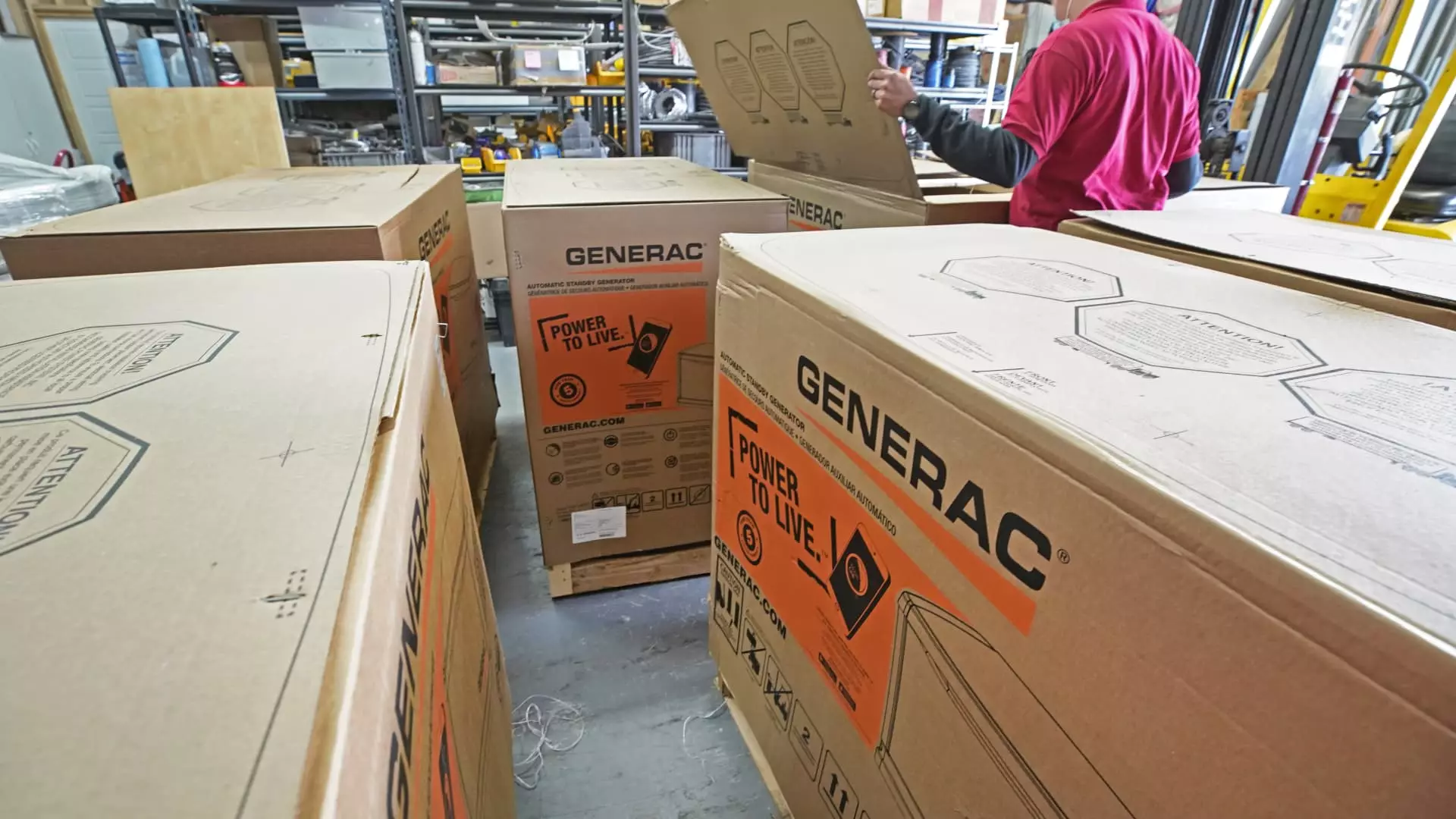As the sweltering sun beats down on a melting United States, with oppressive heat waves gripping the Midwest and the East, investors have begun to flock to Generac, the country’s leading backup generator manufacturer. With unexpected momentum, the company has experienced its best week since November 2024—a staggering 12% increase in their stock price, marking six days of consecutive gains. While the meteoric rise in Generac’s stock might seem promising on the surface, it unveils a grim reality. This is not merely a financial indicator; it reflects a desperate need for prepared power solutions across the country as climate patterns continue to grow increasingly volatile and unpredictable.
The National Weather Service recently warned that extreme heat advisories now affect approximately 130 million people, with states from New York to Illinois facing reported power outages. When we look closer, it’s surprising and unsettling to confront this correlation: investor confidence correlating directly with public vulnerability. The escalating climate change crisis has transformed natural disasters from exceptional events to annual norms, and grappling with their immediate consequences has become a top priority for consumers and investors alike.
The Unsettling Reality of National Infrastructure
The current realities that Generac thrives on signal a broader, more troubling trend. The United States power grid, a relic of a bygone era struggling to support increasing utility demands, is under a tremendous strain. Hurricanes and heat waves are not merely seasonal anomalies; they symbolize a systemic failure in infrastructure that remains inadequately prepared for contemporary climate crises. Predictions by the National Oceanic and Atmospheric Administration of an above-normal Atlantic hurricane season of 13 to 19 named storms emphasizes our precarious situation. Hurricanes aren’t just powerful storms; they threaten the integrity and stability of our most essential systems.
Experts warn that, due to climate change, the risk of power outages could escalate by 50% or more in certain regions of the country. While these predictions are alarming, they are often dismissed by those who cannot fathom the consequences of environmental negligence. Generac’s CEO Aaron Jagdfeld has pointedly stated that the ever-increasing weather volatility will only worsen—a clarion call for the need to invest not only in backup systems but in proactive measures that address the root of the crisis itself.
The Hidden Costs of Profitability
As Generac’s stock continues to soar, one must question the long-term implications of this growth. Will reliance on backup generators create a culture of complacency among utilities and policymakers? With Bank of America predicting a staggering electrical load growth, we could find ourselves gratifying the symptoms of a broken system instead of tackling the issues head-on. Historical patterns reveal that reliance on backup solutions can deter the urgency required to upgrade our aging infrastructure—a critical mistake in a time of climate emergency.
Bank of America’s research concerning the power sector illustrates not just the potential for profit, but also the haunting reality that utility companies are expected to capitalize on rising demands without fundamentally solving the systemic issues at play. Companies like Trane Technologies and various utility stocks may see a financial boon thanks to increasing demand, but shouldn’t we be questioning the sustainability of such a model? The focus must shift from short-term gains to long-term solutions that involve policy changes, infrastructure investments, and genuine consumer education on sustainability.
Investors Should Brace for Impact
In the heart of this critical transition lies a tremendous opportunity for responsible investors who wish to capitalize on future-oriented solutions rather than temporary fixes. This new era of climate awareness invites room for companies that prioritize sustainable energy sources and comprehensive infrastructure reform. As analysts like Ross Fowler urge site-specific selectivity among utility stocks, it is paramount that investors reevaluate their approach, breaking free from the reactive mindset that has characterized market behavior thus far.
On the surface, every financial gain realized by Generac invites commendation, yet one must strictly analyze the societal implications if we potentially neglect the pressing issues of climate change and energy sustainability. It is here that we find ourselves at a crossroads—will we remain catalysts for progress, or succumb to a cycle of exploitation? The choices we make today will shape the landscape of our future, and that includes how we respond to the vulnerabilities exposed by Generac’s stock hike. The alarm bells sound not just for investors but for every citizen aware of the simmering crisis that threatens our very way of life.


Leave a Reply